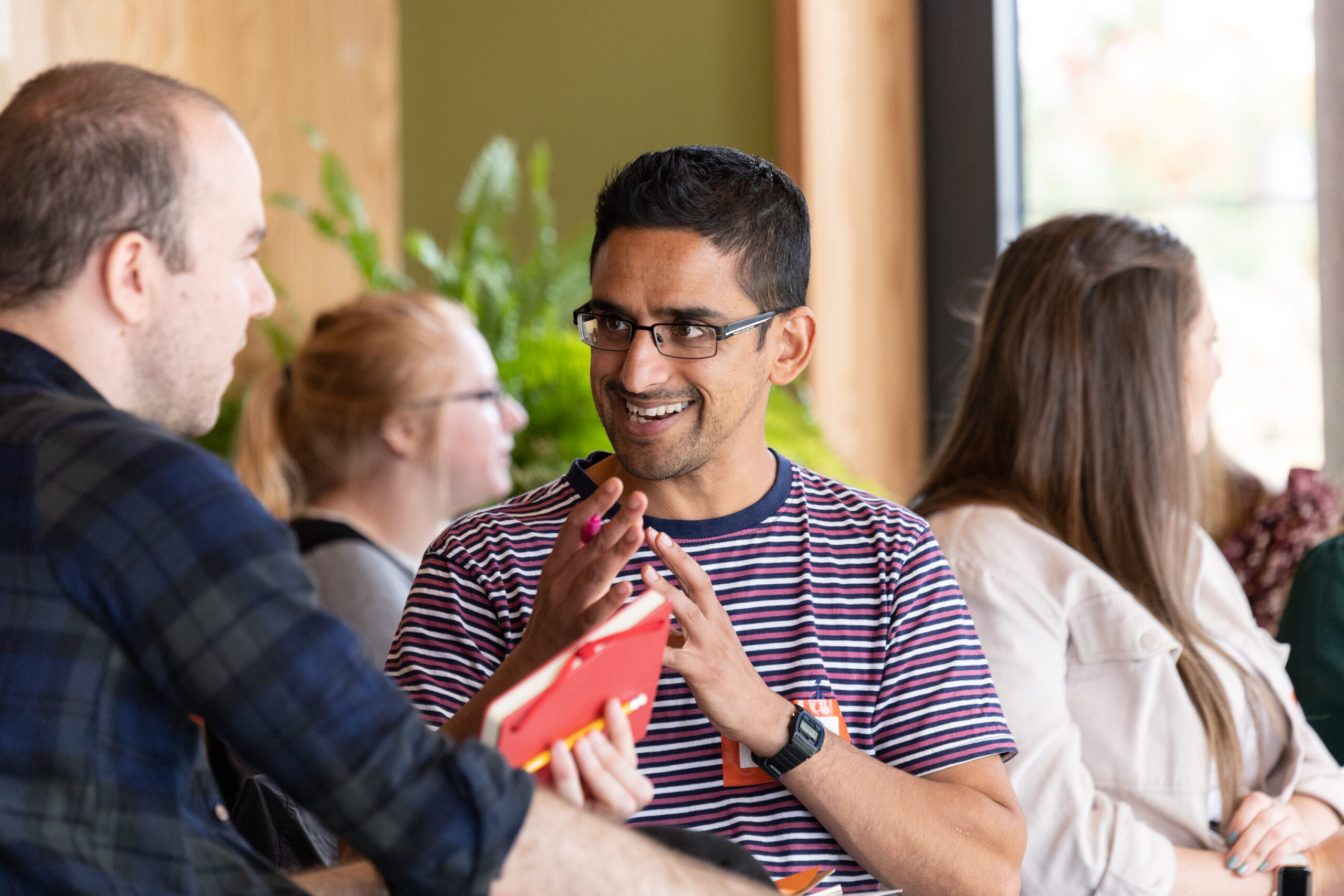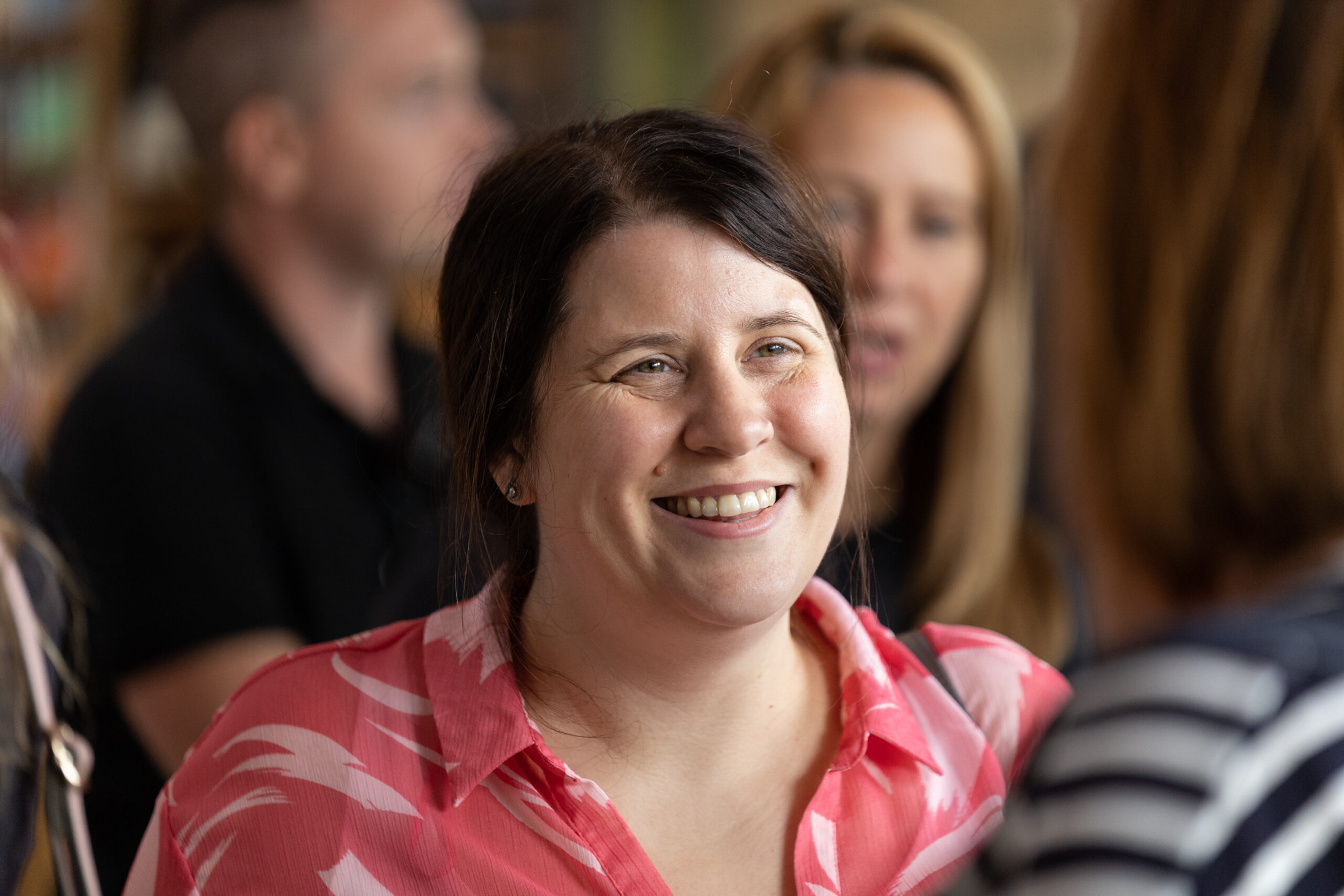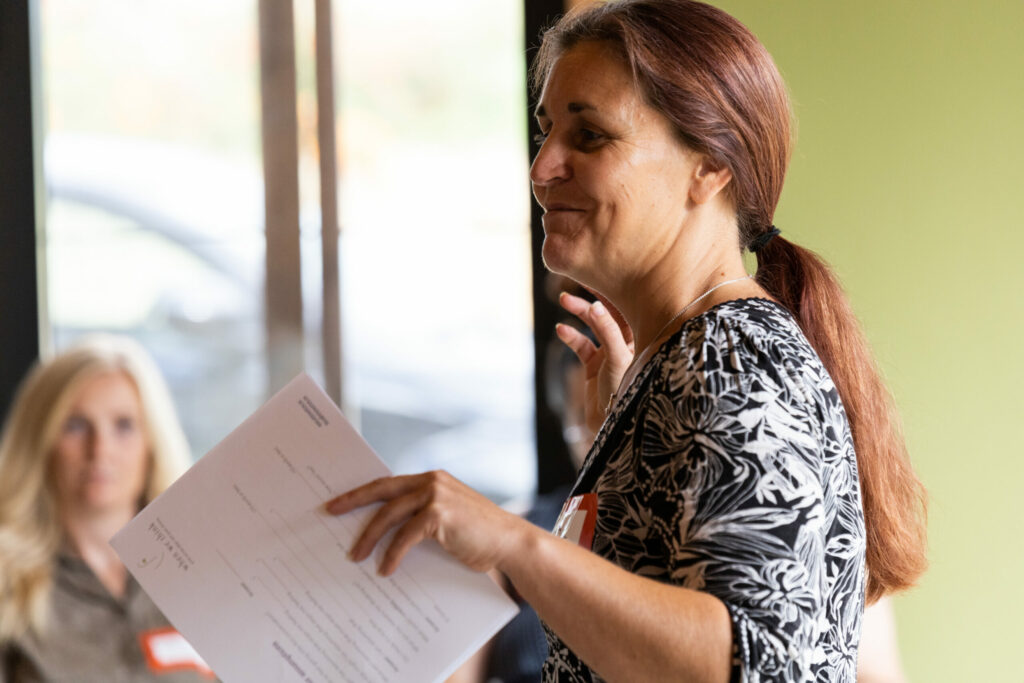
With a background that’s rich in paraplanning experience, Becca Timmins (pictured above at the Big Day Out 2022) is ideally placed to lead a session on personal development power-ups for paraplanners. But what’s in it for paraplanners – and the financial planning practices they work for?
What’s the one thing Becca Timmins wished she’d mastered when she started out as a paraplanner in 2003?
How to give feedback.
“I’ve been in an operations role since 2010, but was paraplanning for quite a long time before that, and I would have massively benefited from thinking about how to give feedback.”
“I’m not thinking about the kind of feedback you give to a team member as a manager – or vice versa – but the ‘the-information-you-gave-me-on-this-file-is-crap-and-this-is-why-I-need-it’ kind of feedback you needed to share with advisers. I just didn’t have those skills.”
These days, the coach and facilitator – and operations director of financial planning practice, Emery Little – recognises that the exchange of feedback relies on a vital quality that she would have loved to have been given techniques to practice earlier in her career too: “I wasn’t taught to listen. To REALLY listen. And that’s a skill that is massively valuable for giving and receiving feedback.”
“Take the crap file example. If I’m going to a planner and saying ‘this is a problem, the file isn’t good enough’ there’s a danger that all they hear is ‘there’s a compliance problem’ and the quality of the conversation is just doomed.”
“But if you can frame and share feedback constructively, and then sit back and really listen to what a planner says, more often than not you realise that you’re both trying to achieve very similar outcomes for clients but are just approaching it in different ways.”
“Paying attention to what people are actually saying and considering how to give feedback – both contribute massively to fostering understanding that results in healthier and happier working relationships.”
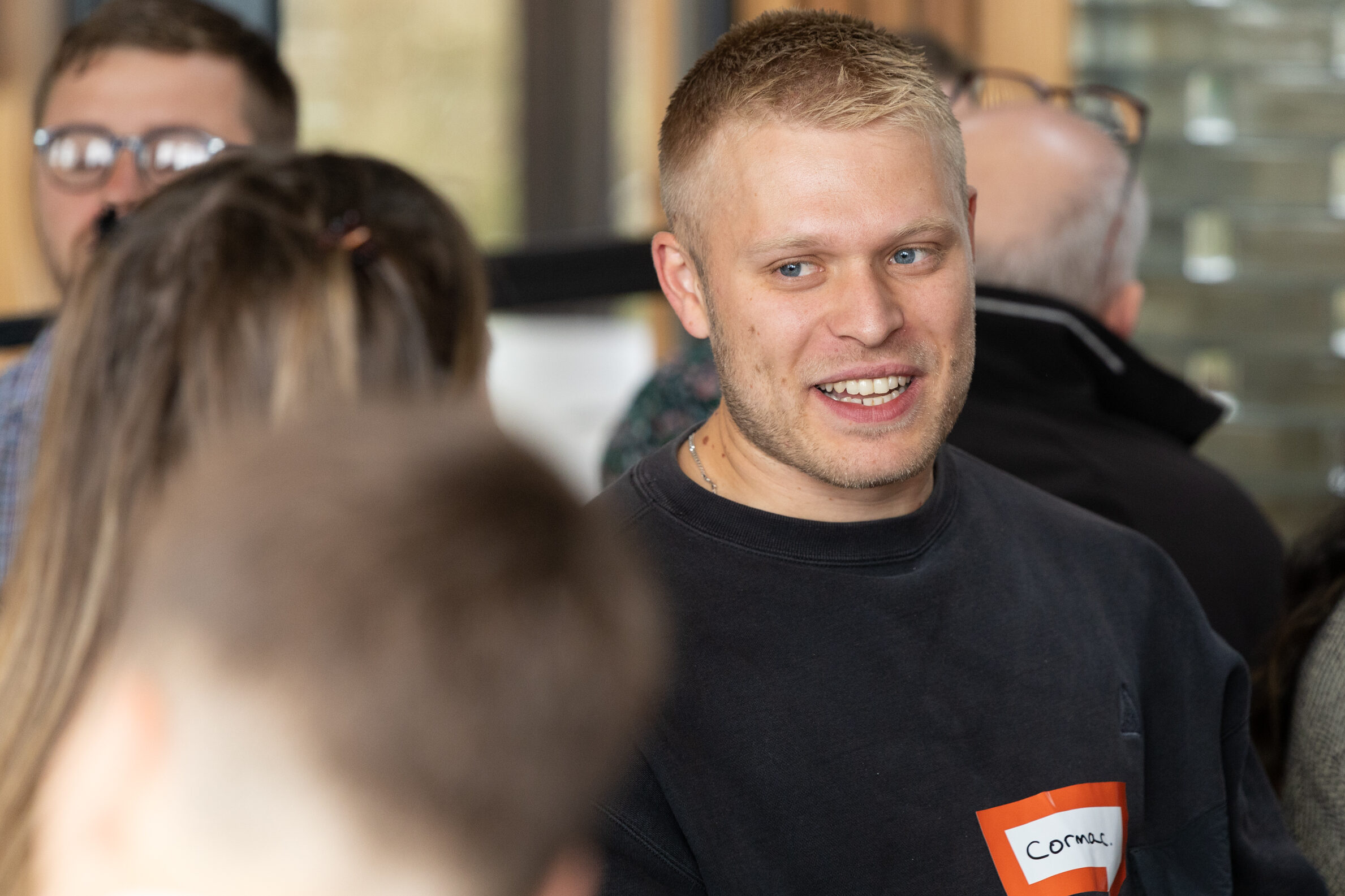
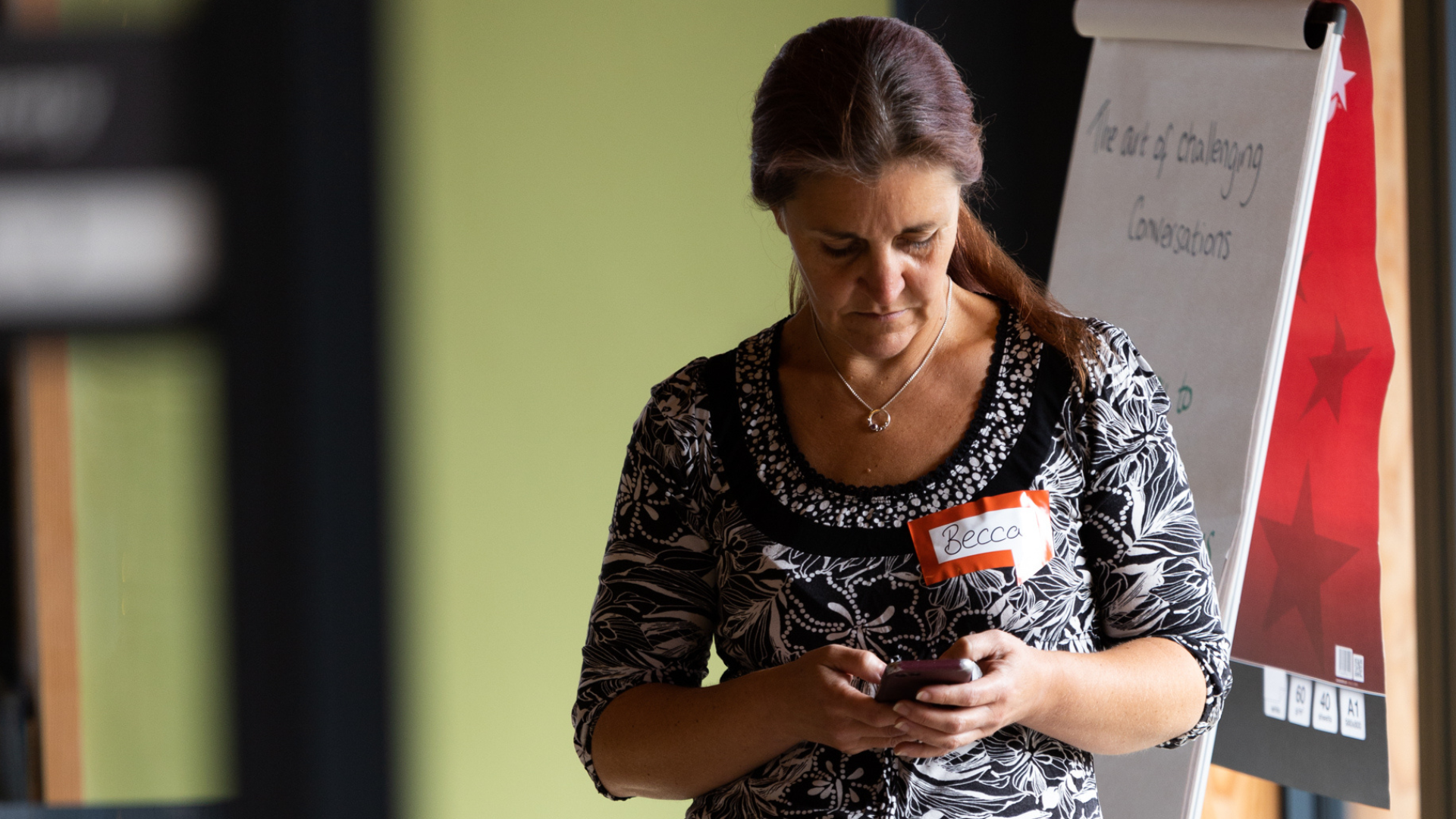
Giving feedback, learning to listen and another essential skill – time management – aren’t issues unique to Becca’s experience as a former paraplanner. They’re issues that have cropped up over the past year or so when Becca has been facilitating a small gathering of paraplanning team leaders for the Paraplanners’ Assembly.
And it’s the frequency with which they featured as a challenge for paraplanners during those team leader discussions that led us to invite Becca to develop a three-hour workshop – called ‘Personal development power-ups for paraplanners’ – that’s designed specifically to help paraplanners gain and practice those skills.
Made possible thanks to the support of Aegon, and taking place online, the workshop begins at 9:30am on 12 May 2023.
Despite being online the format will echo the interactive style of the workshop sessions that Becca ran at the Big Day Out in September 2022. (To see what paraplanners thought of those sessions, scroll down and take a look at the post-it comments pictured at the bottom of this page.)
As for the power-ups, here are three things – in Becca’s own words – that taking part in the workshop will offer you and the business you work for.
1. Give feedback confidently and listen effectively
“I often hear people say they’d like to be able to communicate better. Or I don’t feel heard. Or I don’t feel like I can get my point across very well. Or I don’t feel very well listened to. One of the things that I think people will walk away with is a way to frame feedback in a way that others can hear more easily and so listen in order to reach a better outcome that takes into account both people’s points of view.”
2. Take away practical tools to help manage your time
“Because paraplanners sit in the middle of the organisation – between clients, planners and administrators – they’re pushed and pulled in all three directions. It means they have many demands on their time and often it’s things that are important but not urgent.
Meanwhile, investing time to make things better in a way that will save everyone time – like fixing those report templates, for example – that’s the kind of investment of time that tends to slip.
I want people to walk away with a different way of thinking about time management because, for me, it all comes down to priorities: it’s not that I don’t have the time, it’s that I’m unable to prioritise my time in the right ways or in different ways. Take part and you’ll leave the session with tools to take and try out the next day – practical methods to distinguish between important and urgent tasks and how to prioritise them.”
3. Good for you at work – and good for the business you work for
Historically, I think there’s been a greater emphasis on acquisition of knowledge technically, what exams do you need to pass to be a paraplanner, how do you write better reports – that that sort of thing. Or, for administrators, go and see such-and-such a brand for a day to find out more about their platform.
But the more you and the business you work for looks after the whole person, the better they’re going to perform at work. When we learn to listen to each other better, then we can begin to talk in ways that other people will understand. For instance, as a paraplanner, if you talk about the outcomes for a client, and wanting to give a client a great service, a planner is far more likely to listen to you than if you come from a ‘well-the-file-check-says-that-the-file-needs-to-look-like-this’.
As an employer, if you’re giving people to chance to learn this stuff, giving them the space to learn, and investing time and money for this sort of training. you’re affecting the lives of the people who are working for you in a much bigger way than just what they can do for your clients.
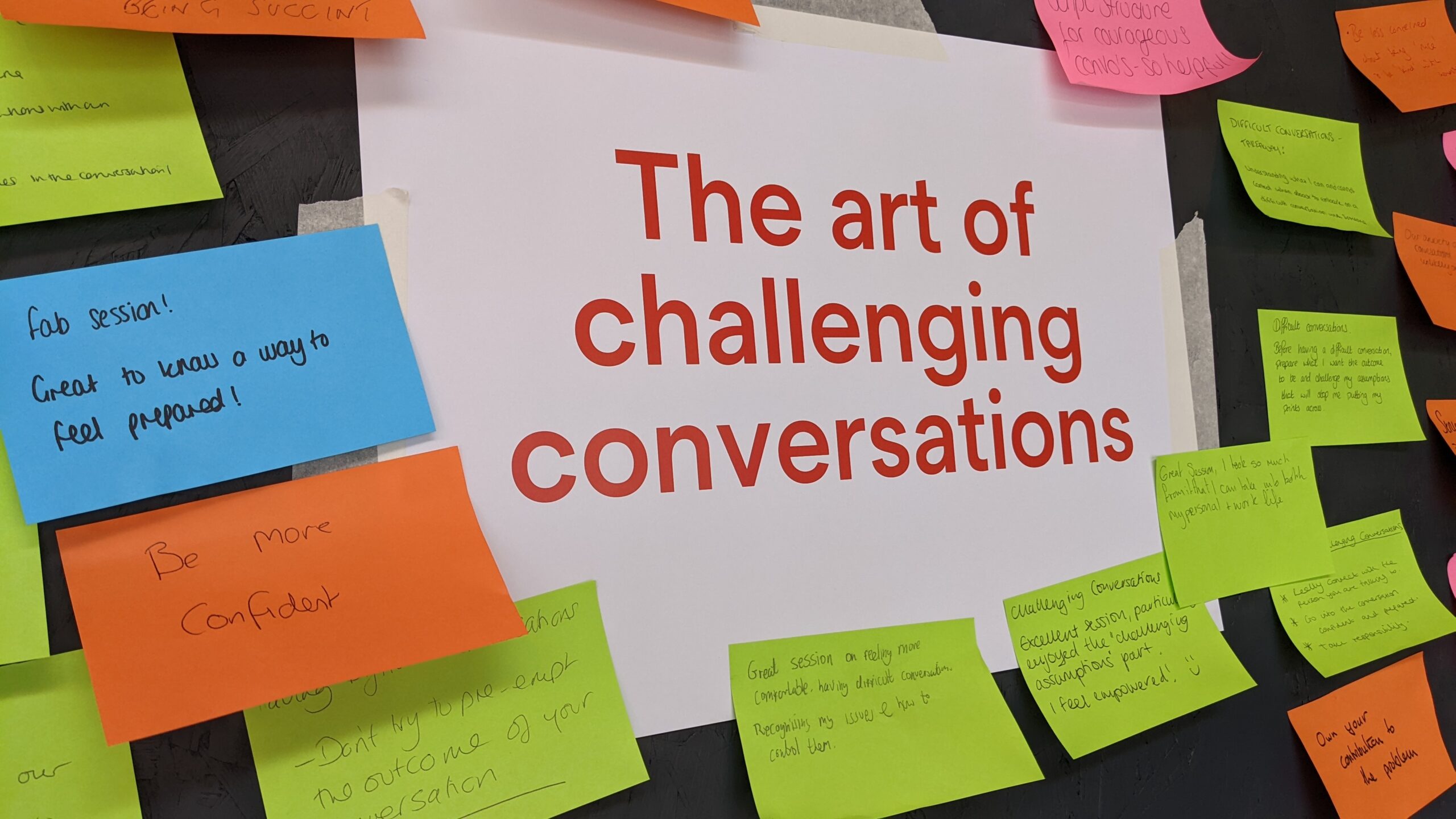
If you liked that, here are two things you can do right now which we think you might like too
Take part in the power-up workshop
If you’d like to join Becca at the Personal development power-ups for paraplanners – a 3-hour online workshop starting at 9:30am on 12 May 2023 – just tap the link.
» Book now
Meet up with other team leaders
Team leader? Then you can join our sessions too. But there’s a waiting list. To join it, tap the link and post a message at The Big Tent thread.
» Visit the thread
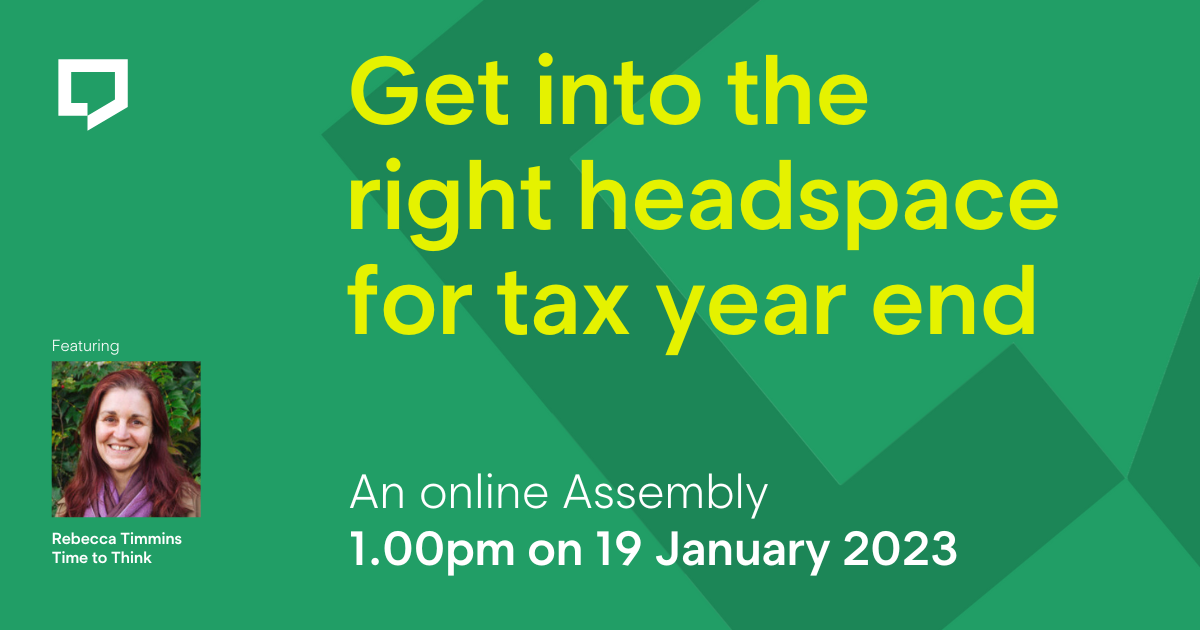
Tax year end. ALREADY?
Yes. But it wasn’t just any old hour’s worth of tax chat (attractive though we know that would be).
No. This is all about getting in the RIGHT MINDSET for 2023’s tax year end deadline.
(Like a HIIT workout. But without the HIIT bit. Or the workout.)
What it involved was coach and facilitator, Becca Timmins, being joined by Kez Condy and Jo Parkes from Navigatus, Zoe Hitchcock from Crowe UK and Emery Little’s Satu Flynn to discuss how they were getting in the zone for this year’s tax deadline.
The audience were invited to tune in as the group answer three questions:
- What went well at tax year end last year?
- What was a challenge?
- What will you take with you into this tax year end?
By sharing their insights and experiences from last year – combined with your own contributions in the chat – everyone taking part – on screen or off it – gained ideas, tips and techniques that could prove invaluable in countdown to the tax year deadline.
Far from being ‘soft’ skills, the ability to listen more effectively, give and receive feedback more confidently, and manage your time more productively are vital personal development skills so you can succeed in your paraplanning career.
But how often do you find time to discover, practice and apply new tools and approaches to fine-tune those skills? Plus do that alongside other paraplanners in the same boat as you?
If that sounds familiar, then this is the event for you. Because we asked coach and facilitator, Becca Timmins, to design a workshop exclusively for paraplanners.
Drawing on a decade of insights provided by Assembly participants, Becca has created the power-up you need to grow your confidence and command of these crucial skills – in just three hours.
This workshop has been made possible thanks to the kind support of our friends at Aegon UK.
What you’ll learn
You’ll learn to lean in to listening
Ever feel the need to fix everyone’s problems for them? Or perhaps you feel pressure to come up with solutions when people share their thoughts and feelings with you?
Learning a new way to think about listening can really help us let go of needing to have all of the answers. Plus, it makes for solutions that are more effective and better thought through. We’ll use our time to discover a refreshing approach to listening.
You’ll feel more confident about feedback
Do you ever feel unsure about how best to give feedback? Perhaps you struggle to get your point across and wish you could articulate yourself more clearly? Maybe receiving feedback makes you squirm?
We’re often not taught how to give effective feedback and so we struggle to know how to do it well. What’s more, bad experiences can put us off trying. So we’ll spend some time learning tools that can help us – and think about how we can get out of our own way.
You’ll gain a new perspective on time
Does it feel like there aren’t enough hours in the day? Maybe you feel like you never seem to have control over how you spend your time?
There are so many tools and hacks out there to try and make us feel we can do more in less time. Perhaps it’s time to think about it a bit differently? That’s why we will set some valuable time aside to explore the way we approach time managing.
About workshop facilitator, Becca Timmins
Our workshop will be led by Becca Timmins.
Becca’s workshops give you lots of room to reflect on things both individually and in conversation with other paraplanners.
Her style makes for an energising and enriching learning experience. In fact, you can see for yourself because we’ve added a few shots from Becca’s sessions at this year’s Big Day Out.
Coach and facilitator Becca has not only worked as a paraplanner in the past but – these days – is director of operations at financial planning practice Emery Little.
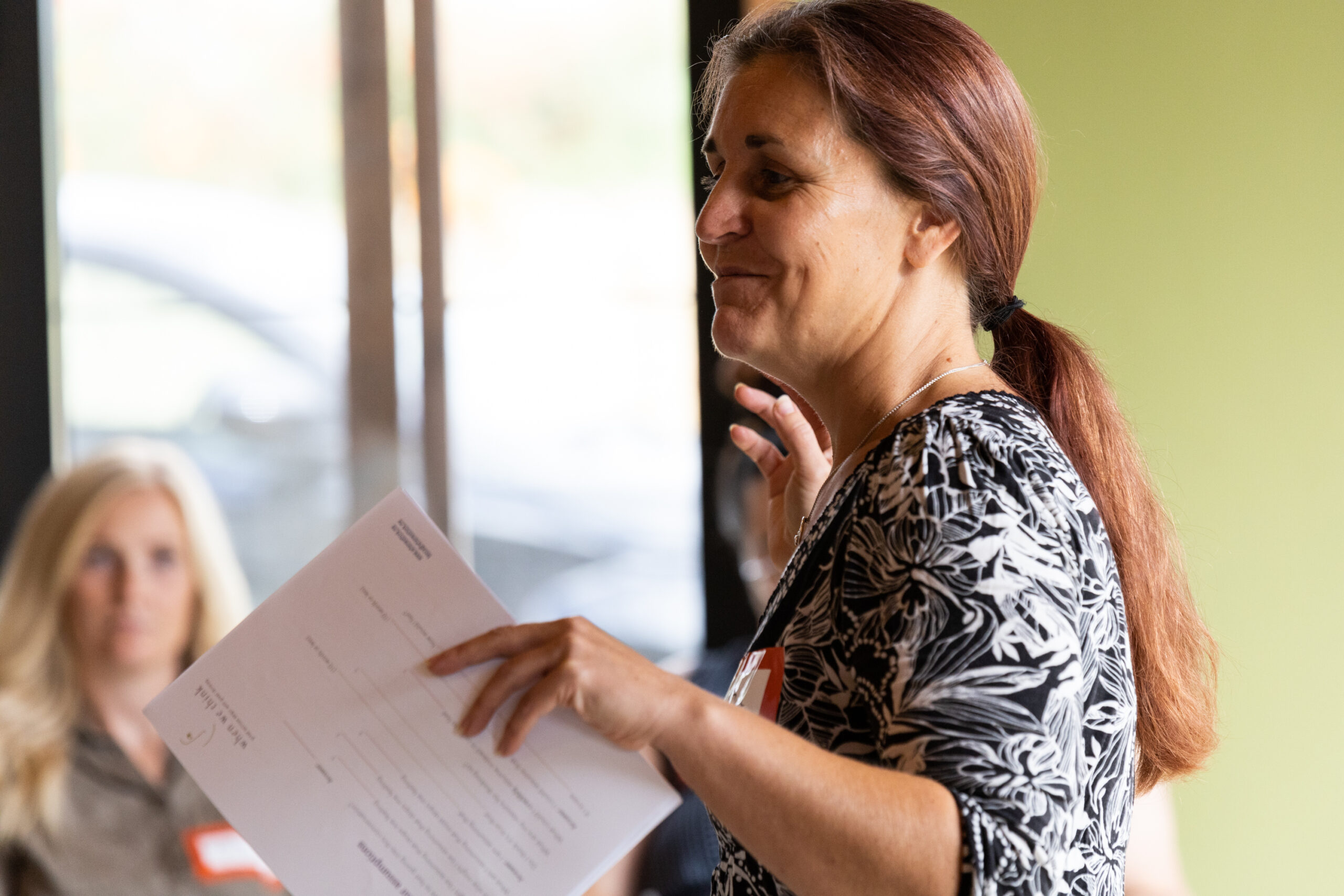

How to join the event
The event will be taking place online using Zoom. Once you’ve bought your ticket, you’ll receive the Zoom link and details of how to join the event on 12 May 2023.
Price
£25 per participant. This includes VAT and Eventbrite booking fees.
How to book
Just tap the Buy tickets button and book online now.
For the first time in three years paraplanners from all over the country were able to gather for real for the Paraplanners Assembly’s Big Day Out at FarmED near Chipping Norton in Oxfordshire on 15 September 2022.
Learning objectives
We opted for a blend of small group sessions – which we called Crop Rotations – and all-together sessions.
Crop rotations: Morning
For the pre-lunch sessions, we split the Assembly into three groups: Barley, Oats and Wheat.
Participants were assigned to a group and each group rotated around the three topic sessions. Conversations in each topic session were facilitated by hosts and experts. Each session lasted for 45 minutes. The topic session for rotations 1, 2 and 3 were:
What will consumer duty mean to you?
Experts: the lang cat’s Mike Barrett and Mel Holman from CATS.
The art of challenging conversations
Expert: Becca Timmins from Time to Think and Emery Little led a session on challenging conversations.
Pep up your paraplanning processes
Experts: LIFT Financial’s Jonny Stubbs and Chris Baigent-Reed from Jigsaw Tree.
After lunch, participants were assigned to a NEW group: Apples, Cherries, Pears or Plums.
That’s because we combined two groups for the session on report writing but – by the miracle of organisation – ensured each group gets a technical Q&A all to itself. So the topics for rotations 4 and 5 were:
Technical Q&A
Panellists: Les Cameron and Neil MacLeod from M&G Wealth, and Transact’s Brian Radbone and Barnett Waddingham’s James Jones-Tinsley.
Three things that get in the way of clear, compliant and client-friendly report writing
Experts: Melissa Kidd of Motem with Mel Holman from CATS.
Broken link or duff information?
If something’s not quite right on this page, please tell us what you spotted now at our bug list.
Our friends at Aegon are doing a lot of work around financial wellbeing. Dr Tom Mathar, Centre for Behavioural Research, Aegon UK and one of the experts on this online assembly, would like to share some thoughts with you.
Life is unpredictable and changes constantly. But what remains is our need for financial security and peace of mind. And with the rise of DIY platforms and robo-advice breaking through an industry focusing on three things – alpha, asset allocation and charges – the value of advice needs to go further. That’s where financial wellbeing can play its part.
So what is financial wellbeing?
Financial wellbeing is how people feel about the control they have over their financial future – and their relationship with money. It’s about focusing on the things that make their life more enjoyable and meaningful – both now and in the future.
What we focus our mind on matters
Everyone’s idea of financial wellbeing is different – from having enough money to live comfortably, making large purchases (planned or unexpected), to being able to repay outstanding debts, as well as being on track with savings and pensions to cover later life.
But you can easily break financial wellbeing down into two things for your clients:
- Financial resilience – do they have enough to pay for what they need now and in the future.
- Focus – are they paying attention to what really makes them happy.
Financial wellbeing building blocks
We found that money building blocks and mindset building blocks are necessary to build financial wellbeing.
As part of our latest research[1] we asked people about their financial resilience and their ‘mindset’ – how they think about money, and we created a scale to help clients picture it:
5 money building blocks
- Income
- Rainy day fund
- Manageable debt
- Smart long-term savings
- Valuables that make us feel secure long term, like property
5 mindset building blocks
- Knowledge of what makes us happy
- A solid picture of our future self
- Savvy social comparisons
- A long-term plan
- Strong nerves in a crisis (resilience)
But it’s also about balance. Even if your clients have their money building blocks nailed, they won’t achieve optimal levels of financial wellbeing without a well-considered and focused mindset too.
What was clear from our research was that mindset scores were lower than money scores, and the mindset scores didn’t improve at the same pace as peoples’ incomes were.
Common mindset problems
Lower mindset scores were a result of several factors including:
- 38% of people have only a vague idea of where they want to be (financially, socially, physically etc) in 10 years’ time vs 29% with a specific idea.
- 28% have only a vague sense of what gives them joy or purpose which are key elements of happiness.
- 87% of people don’t have a financial plan to achieve long-term goals.
- 16% of people frequently compare their finances to the finances of those better off than them with younger people far more likely to do so.
- Only 17% of people were able to answer at least four out of five basic financial literacy questions correctly.
Five tips to adjust your client’s mindset and improve their financial wellbeing
Use the tips below with your clients to reframe your conversations and check-ins and encourage them to think about what gives them joy and purpose.
- Ask them to put happiness first – alert them to be conscious of the things that give them sustained happiness – be that joy or purpose. And that they’re spending time, energy and money on those things with their future happiness in mind.
- Savvy social comparisons – if they’re making social comparisons, encourage them to be healthy and realistic, instead of them comparing to people whose financial lives appear better. Or even suggest they use their past self as a comparison to measure how far they’ve come.
- Help them picture their future self and lifestyle – encourage your clients to spend time regularly visualising their future self and what they might be doing. By paying attention to the life they want to live, pension and investment goals to achieve that lifestyle, can keep them on track. It’s also important for your clients to think about what protection they have in place if something unexpected derails them.
- Make a long-term plan together and write it down – people who write out a financial plan save more regularly and do better financially.
- Reassure them to hold their nerve in a crisis – if your clients are tempted to change their long-term investments, get them to remember why they started saving so they don’t panic and do anything they might regret.
Get started
We’re committed to working with you to help identify advice opportunities and support your clients throughout their lifetime.
To read our research in full and share with your clients, download our digital flipbook – How you can improve your financial wellbeing
We’ve also created a summary guide of the research – Our insight into the nation’s financial wellbeing – designed especially for intermediaries, paraplanners and employers.
For other financial wellbeing support and research, visit aegon.co.uk/financialwellbeing
[1] Research conducted in August/September 2020, based on 10,466 nationally representative UK residents
The online assembly about starting out in paraplanning proved so popular, we didn’t have time to answer all the questions people raised in the hour. So, experts Caroline Stuart, Tony Bates and Benjamin Beck, kindly got together after the show to answer them.
Before you get stuck in to reading their answers, make sure you’ve watched the show here.
Over to the experts
Question 1: I am a year into a junior paraplanning role, I’ve just finished my R0 exams, but I am quite wary that I am still inexperienced and have a lot of areas to develop in the day job. Would you recommend jumping straight into the AF exams or would it be more important to take some time off studying to focus on building up my skillset at work?
Benjamin: I have not yet embarked on the AF exams so it is difficult to answer. What I would like to say is, if you take a study break it can be difficult to get back into the rhythm. Perhaps consider Practical Investment Planning (PIP) qualification as this qualification seek to develop you further for the day to day job.
Tony: My experience working with clients is that If attitude is the same they would always go for someone less qualified (as long as on course for level 4) with more experience than more qualified with less experience so build up as many skills as possible. Don’t be shy to ask the best person in the business how they do things as most people enjoy talking about themselves ! 😊
Caroline: This is a tough one, as it really depends on the type of work you are doing in your day job and how you feel about exams. The change from the R0 papers to the AF papers can feel like quite a leap for some people, particularly if they are still quite new to the job, but the things you will learn from them will help you in your role. The difference between the R0 papers and AF papers is that the R0s are all about learning the information and the AF papers are all about how you apply that knowledge. You would find it difficult to complete the AF papers without the knowledge you’ve gained from the RO papers still being fairly fresh, so the longer you leave between them, the more you will have to potentially revisit and refresh yourself on.
Also, as Ben noted, once you get out of the ‘habit’ of exams, it can be difficult to get back into them. I know I left a couple of years between finishing my diploma and moving on to the Advanced Diploma and in hindsight, I wish I’d just kept going! The information you learn in them will always be useful, even if you are still fairly new to your role, so if you are able to, my advice would be to maybe have a little break to give your brain a well deserved rest but then get back to it as soon as you can.
Question 2: What does PIP stand for?
Benjamin: Practical Investment Planning (PIP)
Question 3: Should I take a paraplanning qualification or do the main financial services ones?
Benjamin: Not sure if you mean specially the paraplanning qualification within CII or the ROs? I would recommend achieving the Diploma as a lot of paraplanning roles have advertised as Level 4 qualified minimum. (Never hurts to have extra qualifications)
Tony: I can only base it on my experience. I think because the paraplanning qualification is not as well known to firms /hiring managers it does not yet have the level of credibility that it probably should. Job market wise then hiring mangers would prefer the main FS ones.
Caroline: Many paraplanners want to be the same level of qualification as the planners they are working with and lots are more qualified. The paraplanning qualifications are a useful add on but they will largely require the knowledge you would learn with the R0 exams to pass it, as there is a certain amount of assumed knowledge with these.
Once you have done your Diploma, this will give you a good foundation to build on, with a really broad knowledge base. As paraplanning is such a wide field, the requirements of your role will largely depend on the business you are working in, and unfortunately, a qualification can’t cater for individual business processes. A paraplanning qualification will give you a good understanding of the role in general, but on the job experience will also build the knowledge and skills you need. I would stick with the main ones initially and then once you have those under your belt, you can choose whether to go for a paraplanning qualification or the advanced ones, depending on where you want your career to go, of course!
Question 4: Are there any decent job search sites specific to financial services perhaps? More general ones I find tricky as specific searches often return completely irrelevant jobs. I have a spreadsheet with a lot of local (and national) firms on with notes which I’ve used to approach speculatively
Tony: I would seek advice. A good recruitment consultant will advise /not sell so research and ask for advice from a consultant. Sometimes the opportunities are not advertised. People have financial advisors to advise on money, and you should see your career as a long term investment and work with a consultant in the same way.
I would also advise to look at companies that match your values, sign up to their careers page and connect with key people on linked in. You will be amazed the opportunities that come your way doing so.
If you are seeking a new role be sure to change to “open to work”on LinkedIn as this means that resourcing teams and recruitment firms will see that you are but not your employer so you are safe!
Caroline: I’ve only used Tony and Idex for the last 10 years! 😂 Approaching companies speculatively is a great idea as they may not have all the jobs advertised and they may not even know they are looking for someone like you until you contact them!
Thanks to Caroline, Ben and Tony for taking the time to answer these questions.
In November, Susan Pringle was joined by Dr. Tom Mathar of Aegon UK to explore behavioural science. You can watch the replay. We enjoyed the Online Assembly so much that when the team at Aegon shared an article about the effect of working with clients in an online environment, we thought it would make an interesting follow up.
So…once more, over to Dr. Tom..
The online encounter
Why clients are more comfortable with an online relationship than you may think
Coronavirus forced many of us to move out of our carefully arranged offices into a home environment and made video calls more prevalent. And with that move, advisers and paraplanners are now faced with the challenge of trying to acquire new clients from their own homes.
The physical cues normally used to get messages about themselves and their business across may be lost. Clients, however, will continue to look for these cues that ultimately encourage them to build trust. So, it’s important to carefully think about the messages the background of video calls can convey.
Subliminal messaging works
The norm of reciprocity means clients are more likely to give away something personal (their concerns, requirements, hopes and aspirations) if you share something personal too – either implicitly or explicitly.
In 2020, we asked 2,100 members of the Aegon Feedback Community what should present itself in the background of a video call – most of our respondents said it should be ‘clean’. Although references to achievements and professional background (for example, awards and certificates) are considered acceptable too.
But subconsciously, sharing deeper personal references such as family connections, seems a more powerful way to enter a reciprocal relationship.
Our study also suggests that using references to your personal wealth or social status (for example, exclusive art or interior design) could stop prospective clients from entering a relationship with you[1]. Similarly, blurring the background could also put you at risk of not building an open, trusting relationships with clients. This, however, may differ with the client segments your firm typically serves.
Share and share alike
The TrustedAdvisor’s Trust Equation[2], uses four variables to measure trustworthiness:
- Credibility (which has to do with the words used in client interaction);
- Reliability (which has to do with actions);
- Intimacy (relates to the safety / security we feel when engaging with someone), and
- Self-orientation (refers to your focus and, more specifically, if you seem focussed on the client or yourself).
Of all four, intimacy is considered the most powerful component. Intimacy refers to the sense of security that someone gets when they engage with you. They want to know that everything they share with you will be treated with respect and propriety.
In our report Building trust with prospective clients, we look further into the Trust Equation – how only by giving something will you likely get something back, and by sharing your own hopes, fears and aspirations you will invite the same from your clients – and how this can help to develop a deeper understanding of their financial motivations.
How you and your clients adapt
Pollster Opinium[3] found that the majority of advisers (59%) said that ‘working with clients remotely’ is the main challenge they’re currently facing when adopting to Coronavirus disruption.
Before the pandemic, 84% met their clients in a face-to-face encounter ‘often’ or ‘very often’ and only 7% used video calls. Going forward, 70% assume they’ll meet their clients face-to-face ‘often’ or ‘very often’ – and 38% say they’ll meet clients using a video call.
Opinium’s research also found that clients would now prefer to meet their adviser in a video call after the pandemic, rather than return to face-to-face meetings as they become increasingly more at ease with the idea of an online relationship.
And in our own research, crucially, those who think this are the Career-driven families and Upper Echelons customer segments, who have significantly higher assets than average and are more likely to work with an adviser.
Summary
It’s likely that video calls will continue from now on, so it could be worthwhile thinking about which supportive cues are right for your clients and business’ brand.
And it’s worth noting the variables in the Trust Equation have become much tricker to manage with the move from office to online meetings. In a video call it’s a careful balance between conveying the right levels of intimate messages about yourself without seeming as if you’re pushing your own goals onto your clients. Getting the right blend can have a significant impact on client trust and your business.
You can read more about the research and our findings in our two reports:
Increasing client trust during video calls
Building trust with prospective clients
[1] Aegon Feedback Community, 2,100 respondents, 2020
[2] trustedadvisor.com, the Trust Equation, 2020
[3] Understanding the impact of Coronavirus on the investment landscape. Opinium, 2020.
Thank you Dr. Tom and Aegon UK. 👍
Understand the importance of behavioural science within paraplanning.
Learning Objectives
In this session we covered…
- Influencing advisers
- Applying behavioural principles in client communication
- The EAST framework
- Why picturing their future self tells you more about a client than their income
- Building trust
- The power of ‘pre-suasion’
- Self behaviour tips for dealing with stress
When Lindsey Gedge contacted us before a recent event to let us know that she has a hearing impairment, we learnt some valuable lessons on making the Powwow accessible. Lindsey kindly offered to share her thoughts on making events easier for those with hearing impairments. Over to Lindsey 😊
My experience at the Howwow
- Make no assumptions – it was instrumental to me that I was asked by the organiser if I would be comfortable working in a group and this made me feel confident in raising my concerns. Talking this through made me realise I could try using my hearing pen in a slightly different way than I have previous experience of.
- Make it really easy for people to let you know in advance so you can plan – I was introduced to several people who would be leading the groups. This gave us both the opportunity to voice any queries before the day started and made it feel less intimidating to me asking for extra help.
- Never underestimate the desire in groups of people to make sure everybody’s experience of an event is a great one – I need not have worried. I was absolutely blown away by how kind people were. I really felt I was part of my group and I was able to take lots of new knowledge and ideas away with me that ordinarily I would not have been able to do. It was refreshing to have felt included, instead of isolated.
- The technology available – the hearing pen was a revelation to everyone! I was able to apply for a grant from the DWP who paid for both the pen and the training. You can find out more here. I wish I’d had one years ago but it means I can now engage and participate with groups of people, whereas previously I wouldn’t have been able to.
Top tips when communicating with a person with hearing impairment
- Please catch our attention before speaking
- Please speak clearly, and, ideally, project your voice (rather than shout)
- Please understand that having a hearing impairment is exhausting and tiring, therefore our concentration levels do get affected
- Above all, please be patient
I would like to take this opportunity to say thank you so much to everyone for their kind assistance. It has given me the confidence to use my hearing pen again, especially if it is a Paraplanners Howwow event. I very much look forward to attending next year!
Thanks again for sharing Lindsey. See you at an event soon 😊
Following the ‘This time it’s personal’ Howwow in November, we asked Chris Hindle, Director and Paraplanner at Frazer James and outsourced Paraplanner to share his thoughts. It was Chris’ first Powwow event, and our first time focussing solely on soft skills, so his insight is doubly interesting. Thanks for sharing Chris 🙂
Do paraplanners need soft skills?
That was the question I was asking myself after a colleague suggested I attend an all-day course to develop my soft skills.
An introvert by nature, I was initially resistant to the idea. Why do I need soft skills training, surely this was the domain of advisers?
The thought of a full day workshop on soft skills development made me slightly uncomfortable, which in itself told me that it was probably a good idea to attend!
So I signed up.
My first ‘Powwow’
Having not previously attended a ‘Powwow’, I wasn’t quite sure what to expect. Would it be leading from the front like most workshops, or would it be something different entirely?
The first thing I noticed is the sense of community. This was an event organised by paraplanners, for paraplanners. We were coming together to learn, fix and share in a non-judgemental way.
A loose agenda kept the day together, but the event was largely driven by the needs of the attendees. We were treated as participants, not delegates.
Why paraplanners need soft skills
Despite initially being resistant to the idea, I came around to believing that soft skills are as much the domain of paraplanners as they are of any other role.
Whilst the role of ‘paraplanner’ differs widely between firms, one commonality is that in all firms paraplanners interact with other people. This holds true for both in-house and outsourced paraplanners.
Being able to communicate with clarity and confidence, is the key to developing and maintaining successful relationships.
The feedback from advisers confirmed this:
What I learnt
Although there was lots to takeaway, there are three things that really stuck with me:
- Giving effective feedback.
I’ve been guilty of being very direct with my feedback. For some people this can work well, but it’s not for everyone. It can damage relationships and make people feel undervalued.
In the future, I will ask the recipient how they like to receive feedback. Everyone has a different style, so if we want to get the most from people, we need to communicate in a way that suits them.
- Listen, don’t speak.
Sometimes, I prepare my response whilst somebody is still speaking. I’m not actively listening to them; I’m just waiting until it’s my turn. It pains me to write this, but it’s true.
In the future, I will work harder on actively listening to the other person. If something comes into my head, I’ll write it down. This keeps my head clear so that I can focus on what they are saying.
- Enjoy the silence.
Silence makes me uncomfortable, so I fill it the only way I know how, by filling the space. This was made painfully clear when I listened to recordings of telephone conversations I have had with clients.
In the future, I’m going to give people the space to think. I will keep in mind that they may not have had the time to think through the information I’ve just provided and need the space to do so.
What next?
It’s clear that paraplanning has come a long way in a short space of time. It’s also clear that there is still a long way to go, particularly around soft skills training.
Personally, I’m going to be spending 20% of my continuing professional development on developing my soft skills.
I’ll be doing things like:
- Listening to voice recordings from conversations I have with end clients (as painful as that is)
- Completing a reflective statement and using this as a key part of my developmental review meetings
- Attending more courses like the ‘this time it’s personal’ Howwow
How about you? Do you think soft skills training is important? What will you be doing to improve your soft skills?

